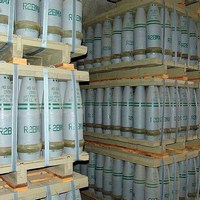Amid the diplomatic breakthrough at the Security Council and arrival of the United Nations chemical weapons inspection team in Damascus, many observers have lost sight of two key questions about Syria: How did the regime get its chemical weapons, and how might tragedies like the Aug. 21 chemical attack on Syrian civilians be prevented in the future?
While Syria has had the technological means to manufacture chemical weapons for decades, it does not currently produce the precursors for the sarin nerve agent we now know was used outside of Damascus. Outside sources were necessary.
Some have suggested Iran and North Korea as possible suppliers. But whether or not allegations of these connections prove correct, it is already clear that the Syrian government and its agents also managed to supply its chemical weapons program by co-opting the same global infrastructure that enables legitimate cross-border trade.

